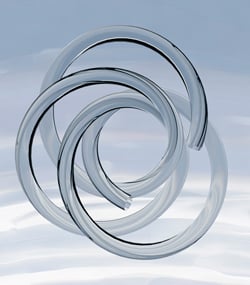Progarchives.com has always (since 2002) relied on banners ads to cover web hosting fees and all.
Please consider supporting us by giving monthly PayPal donations and help keep PA fast-loading and ad-free forever.
/PAlogo_v2.gif) |
|
Post Reply 
|
Page <12345 6> |
| Author | ||||||
Dean 
Special Collaborator 

Retired Admin and Amateur Layabout Joined: May 13 2007 Location: Europe Status: Offline Points: 37575 |
 Posted: April 12 2015 at 12:02 Posted: April 12 2015 at 12:02 |
|||||
Some people think that some of it does and some of it doesn't, other's think that none of it does. However, no one thinks that all of it does. I hope that clarifies things a little. Note: Progressive Rock does not have this dichotomy of opinion, it is Popular Music and not Art Music.
Edited by Dean - April 12 2015 at 12:04 |
||||||
|
What?
|
||||||
 |
||||||
Dean 
Special Collaborator 

Retired Admin and Amateur Layabout Joined: May 13 2007 Location: Europe Status: Offline Points: 37575 |
 Posted: April 12 2015 at 12:03 Posted: April 12 2015 at 12:03 |
|||||
Well done Jean-Marie, I think you have successfully managed to shoot yourself in the foot
 |
||||||
|
What?
|
||||||
 |
||||||
jayem 
Forum Senior Member 
Joined: June 21 2006 Location: Switzerland Status: Offline Points: 980 |
 Posted: April 12 2015 at 12:47 Posted: April 12 2015 at 12:47 |
|||||
But only because I failed to honour your first answer into thanking or nodding. To me your answer makes sense, and I can't deny the existence of phrase nouns, and naming habits. So "Art music" is a phrase noun, but I think it's been worth trying to know what it means as regular words, and how it compares to the "phrase noun" meaning. That's why I welcome Svetonio backing my first comment, though I can't really agree that each and every prog piece would fit to being (non phrase-noun meant) "pure art music" or "inner-directed" (doesn't read pretentious bollocked if it means that it's just music we enjoy fancying alone rather than dancing to it in the midst of a crowd). This as a plaster for my foot...
|
||||||
 |
||||||
SteveG 
Forum Senior Member 

Joined: April 11 2014 Location: Kyiv In Spirit Status: Offline Points: 20469 |
 Posted: April 12 2015 at 12:55 Posted: April 12 2015 at 12:55 |
|||||
|
||||||
 |
||||||
Dean 
Special Collaborator 

Retired Admin and Amateur Layabout Joined: May 13 2007 Location: Europe Status: Offline Points: 37575 |
 Posted: April 12 2015 at 13:50 Posted: April 12 2015 at 13:50 |
|||||
No, that's not the reason.
Nope. Art Music is a distinct musicological classification of music. I am being pedantic over this point because people have a nasty habit of misusing and confusing phrases. Since music is an art then prefixing the word "music" with the word "art" in a general, non-musicological classification, non-noun-phrase sense is superfluous and thus meaningless - it becomes a tautology... we would not, for example, call dance that is intended to be watched rather than participated in "art dance". However, the definition that you are using would be an incorrect description of (general, non-musicological classification, non-noun-phrase) art music even when you precede it with "pure". Following your reasoning then any easy listening or contemplative music would qualify as "art music" ... or even New Age Music would fit that description. Yet, as you say, that description would not be applicable to every piece of Prog Music and Svetonio does mean ALL Prog. He gave you a pat on the back because you seemed to be backing-up is premise... However. He really does mean that he thinks Prog Rock is Art Music in the musicological classification sense. He wants it to be considered to be equivalent to Classical Music:
He even stresses the capital "A" to make sure we do not misunderstand his meaning here. 'Inner-directed' is a phrase that is impossible to apply to any piece of music because it is impossible to determine why a piece of music was create or how it will be used by the listener. I call it pretentious bollocks because it is attempting to elevate a form of music into being something it isn't.
Edited by Dean - April 12 2015 at 13:50 |
||||||
|
What?
|
||||||
 |
||||||
Svetonio 
Forum Senior Member 

Joined: September 20 2010 Location: Serbia Status: Offline Points: 10213 |
 Posted: April 12 2015 at 14:15 Posted: April 12 2015 at 14:15 |
|||||
Of course that not every prog song is Art music, but the percentage of great prog songs & epics is quite sufficient, so we no need to speculate. Same is with Jazz which is mainly Art music too. And of course that our beloved genre with all of its sub-genres and styles (and all of great prog bands who are the prog sub-genres per se) not belong to popular music, i.e. prog not belong to any of the different styles of music(s) that was created solely to be sold as an entertainment of the masses. As I said earlier at this (great) topic, but also at some other topics, I claim again: the period of "mainstream popularity" of the music that we were accepted in the seventies as the progressive rock as well, actually was just a coincidence that was resulting from concerns of the music industry who didn't want to miss the "new big thing". Or, even better, the progressive rock was, let's say, "permitted" by the music industry to enter in the "big rock'n'roll party" by mistake. One could say that the music industry is not left empty-handed with prog and that's true, but as soon as the music industry was ready, willing & able to repackage the U.S. garage rock and UK pub-rock, as both extremely cheap to produce the albums and singles, into the "new genre" and to sell it as "punk", the music industry was no longer fully supported the progressive rock as a genre of Art music which was / is not for everyone. Since 1976, the music industry wasn't waiting anymore for a "new big thing"; in 1976, the music industry actually has created itself that "new big thing", and that was "punk", a "new" popular music and fashion (any profit from popular music is always much bigger when it's happy married with the fashion and a 'way of life') for the masses arround the globe - lol, do you recognize this guy:  Ex-President of Russia, Mr Dmytry Medvedev as a young man, 1986 Edited by Svetonio - April 12 2015 at 14:50 |
||||||
 |
||||||
Dean 
Special Collaborator 

Retired Admin and Amateur Layabout Joined: May 13 2007 Location: Europe Status: Offline Points: 37575 |
 Posted: April 12 2015 at 14:41 Posted: April 12 2015 at 14:41 |
|||||
Mainly? Hardly.
That is a terrible definition of Popular Music.
Irrelevant. Prog Rock is Rock. It was a development of Rock. Popularity has NOTHING to do with
 ...  <roflmao>
[Not] British fascist Nigel Farage as a young man:  (please note: this image is a fake and only posted here for comedic purposes)
Edited by Dean - April 13 2015 at 04:05 |
||||||
|
What?
|
||||||
 |
||||||
twseel 
Forum Senior Member 

Joined: December 15 2012 Location: abroad Status: Offline Points: 22767 |
 Posted: April 12 2015 at 16:12 Posted: April 12 2015 at 16:12 |
|||||
|
Why is this discussion now all about the meaning of art music or 'Art Music'? Surely, Dean, you must realise that progressive rock and jazz and other such things could be considered 'art music' by the masses(jayem & Svet) through, among others, their cultural proximity to things more often considered art and indeed more of an artistic and less of a commercial view on creating music. If this definition is then approved by experts and old encyclopaedias shouldn't be relevant to the discussion.
|
||||||

|
||||||
 |
||||||
Dean 
Special Collaborator 

Retired Admin and Amateur Layabout Joined: May 13 2007 Location: Europe Status: Offline Points: 37575 |
 Posted: April 12 2015 at 16:35 Posted: April 12 2015 at 16:35 |
|||||
|
Nope.
|
||||||
|
What?
|
||||||
 |
||||||
jayem 
Forum Senior Member 
Joined: June 21 2006 Location: Switzerland Status: Offline Points: 980 |
 Posted: April 12 2015 at 16:55 Posted: April 12 2015 at 16:55 |
|||||
|
Thanks for your time. So the reason I suggested for the shooting in foot is wrong ? Let's look at my feet then... ...What a surprise... ! My feet are safe. But it's because I'm sort of a random ghost here...The bullet wouldn't encounter much stuff.
I have no problem with that. I'd vote for "Erudite music" instead of "Art music" (we'd have to precise whether it's symphonic orchestra geared or rock geared, etc ) and the "Art music" tag would disappear forever !! Edited by jayem - April 12 2015 at 18:23 |
||||||
 |
||||||
Dean 
Special Collaborator 

Retired Admin and Amateur Layabout Joined: May 13 2007 Location: Europe Status: Offline Points: 37575 |
 Posted: April 13 2015 at 01:21 Posted: April 13 2015 at 01:21 |
|||||
But not all Prog would qualify as erudite. Why not just call it Prog Rock? Rather than try hammer this square peg into a round hole can someone explain to me WHY it is so important to you that it should fit? |
||||||
|
What?
|
||||||
 |
||||||
Svetonio 
Forum Senior Member 

Joined: September 20 2010 Location: Serbia Status: Offline Points: 10213 |
 Posted: April 13 2015 at 02:31 Posted: April 13 2015 at 02:31 |
|||||
|
I'd like that some examples always to be placed next to my assertion; just as an illustration as well. Here are three video clips. All three are folk. First two videos are made in Serbia; well, video clip no. 1 is a popular, "mainstream" folk, well executed technically but entirely in favor of kitsch i.e. popular music created to be sell out for the masses and, consenquently, pretty unlistenable for any prog (Art music) crowd; uploaded to Youtube in December 2014; 13.466.858 views; 1426 comments. The second video is instrumental prog-folk i.e. Art music par excellence, actually created by female fronted band called Hazari that is already in the PA' Prog Folk section. Uploaded to Youtube in November 2007; 1069 views; 0 comments.
So, this is popular music... ...this is an Art music: And as this thread is dedicated to the avant-garde relation's to popular music, and I'd like to comply on that, the third video is actually PA' Prog Folk (i.e. Art music) band Jack O' The Clock from California whose catalog contains a certain amount of avantgarde. Uploaded at Youtube in August 2014; 103 views; 0 comments. I hope that these examples will explain my reasoning to the readers of this topic a bit more
Edited by Svetonio - April 13 2015 at 02:42 |
||||||
 |
||||||
Toaster Mantis 
Forum Senior Member 

Joined: April 12 2008 Location: Denmark Status: Offline Points: 5898 |
 Posted: April 13 2015 at 02:40 Posted: April 13 2015 at 02:40 |
|||||
|
Well, the argument in the essay I linked to in the opening post goes that new ideas and paradigm shifts within popular music have to come from the "art music" world like modern classical, experimental jazz etc. but are then disseminated into popular music from more avantgarde forms of music somewhere in the liminal zone: Music that is technically speaking part of "low culture" but avantgarde so far as it's oriented towards a countercultural niche rather than the mainstream massculture and does look to the "art music" for inspiration... like certain styles of progressive/psychedelic rock (like Zappa and RIO), the more erudite corners of black/death metal, industrial/noise/power electronics and so on.
The influence will then spread from the "hard core" of the music subcultures to the mainstream through, as the innovations are picked up on elsewhere in the subcultural genres into ever more accessible form. The paradox is that for the cultural life at large to advance and grow, that sphere depends on artists who either isolate themselves from it or outright reject it. Have I made that clear? The question is then whether that narrative actually holds up under scrutiny, so far it appears that it's probably a stretch at best though it might have a kernel of truth. In the words of the contemporary British poet Esther Adaire: Attempting to write history in a linear fashion feels like telling lies. Some truths are tangential to the line of emplotment. Once you delve into the complexities of an event, you find yourself in a feedback loop of metanarratives. |
||||||
|
"The past is not some static being, it is not a previous present, nor a present that has passed away; the past has its own dynamic being which is constantly renewed and renewing." - Claire Colebrook
|
||||||
 |
||||||
Dean 
Special Collaborator 

Retired Admin and Amateur Layabout Joined: May 13 2007 Location: Europe Status: Offline Points: 37575 |
 Posted: April 13 2015 at 03:15 Posted: April 13 2015 at 03:15 |
|||||
I now understand a little more how you manage to be so confused. However, you have not answered my question. I did not ask for an explanation of your reasoning (you've done that already, albeit badly), I asked for an explanation why it was important to YOU that Prog should be fitted into Art Rock.
As Simon has observed: "Art Music/Popular Music" and avant-garde/mainstream are two different axes. (I would add a third commercial/non-commercial axis to that). Music can vary along the avant-garde/mainstream axis while remaining as Popular Music. A piece of music can be more commercial or less commercial and still be Popular Music; it can be more mainstream or less mainstream and still be Popular Music; it can be more avant-garde or less avant-garde and still be Popular Music; and it can be more popular or less popular and still be Popular Music. None of those factors affect whether it is Art Music or Popular Music because we can apply them just as equally to Art Music. Edited by Dean - April 13 2015 at 03:59 |
||||||
|
What?
|
||||||
 |
||||||
Dean 
Special Collaborator 

Retired Admin and Amateur Layabout Joined: May 13 2007 Location: Europe Status: Offline Points: 37575 |
 Posted: April 13 2015 at 03:45 Posted: April 13 2015 at 03:45 |
|||||
I pretty much agree with this. The avant-garde of one era becomes the commonplace (mainstream) of another by some means or other. How this occurs is not cast is stone and doesn't follow any prescribed route. It often begins in the rarefied atmosphere of "high-brow" art because that is where innovation and forward-thinking is most encourage and accepted but it is not limited to only coming from there.
Earlier I mentioned Art Nouveau as an illustration of avant-garde (decorative) art. This movement in decorative arts lead to Art Deco, which isn't considered to be avant-garde although it was also influenced by other avant-garde movements in art such as Cubism, Modernism and Futurism. Art Deco was quickly adopted into the mainstream and became the ubiquitous "bolt-on" mass-produced adornment for everything from radios to buildings. The new avant-garde will then react against that newly established norm. As I said, copying avant-garde is not being avant-garde, and by the same reasoning, being influenced by avant-garde development does not result in avant-garde.
Crystal clear. (not that it was every cloudy to me  ) )Edited by Dean - April 13 2015 at 04:03 |
||||||
|
What?
|
||||||
 |
||||||
Svetonio 
Forum Senior Member 

Joined: September 20 2010 Location: Serbia Status: Offline Points: 10213 |
 Posted: April 13 2015 at 04:03 Posted: April 13 2015 at 04:03 |
|||||
It should be also noted that avantgarde actually begins with a controversial French artist (naturalized American) Marcel Duchamp who has made a strong impact to the Modern art. One of the first artists who used the already existing things (readymades) in his Art. The most famous work of this kind is his Fountain, a porcelain urinal, which he signed as his work at exibition of the Society of Indenpendent Artists, in 1917.  His art was greatly shaken the world, who had not seen anything like it before. In the beginning, his works have been rejected in many art galeries because of provocative titles and content. Today Duchamp is considered, along with Picasso, as the most influential artist of the twentieth century. Edited by Svetonio - April 13 2015 at 04:29 |
||||||
 |
||||||
ExittheLemming 
Forum Senior Member 

Joined: October 19 2007 Location: Penal Colony Status: Offline Points: 11415 |
 Posted: April 13 2015 at 04:07 Posted: April 13 2015 at 04:07 |
|||||
|
^Piss artist.
I don't believe something like Prog or any other form of highly evolved Rock Music would stand up to the sort of academic scrutiny afforded to Art Music*. That's not to say the latter is in any quantifiable way better, but most Popular Music when broken down into thematic development, modulation, rhythmic groupings, motivitic sources, counterpoint, harmonic innovation etc just looks a bit like erm...bo-toxed jingles advertising tight fitting clothing. (*That's correct, I can't define that either.) Edited by ExittheLemming - April 13 2015 at 04:33 |
||||||
 |
||||||
Dean 
Special Collaborator 

Retired Admin and Amateur Layabout Joined: May 13 2007 Location: Europe Status: Offline Points: 37575 |
 Posted: April 13 2015 at 04:08 Posted: April 13 2015 at 04:08 |
|||||
As I said, I agree with this. That is NOT the part of your post that I questioned.
 |
||||||
|
What?
|
||||||
 |
||||||
Toaster Mantis 
Forum Senior Member 

Joined: April 12 2008 Location: Denmark Status: Offline Points: 5898 |
 Posted: April 13 2015 at 04:45 Posted: April 13 2015 at 04:45 |
|||||
|
I'm reading the essay a second time and the author actually admits that avant-prog, industrial, metal, punk etc. have an advantage over "art music" even as they draw influence from it, in that those subcultures are not part of the academic cultural power structure. Hence, they have more leeway to think outside the box in terms of concept because they do not depend on academic consensus for approval and support. This might in turn be how they can open the possibility for the more mainstream music circles to pick up their innovations. People who won't listen to Edgar Varese might still listen to Frank Zappa, and people who won't listen to Zappa might still listen to The Beatles' later relatively experimental albums. People who won't listen to Karlheinz Stockhausen might still listen to Krautrock, and people who won't listen to Krautrock might in turn listen to electronic music or post-punk. People who won't listen to Glenn Branca might still listen to 1980s noise rock, and people who don't listen to 1980s noise rock might still listen to 1990s grunge.
Another paradox, of course, is that for music subcultures to maintain their avant-garde role they have to be somewhat exclusive in order to not compromise their founding ideals... they can't be wholly part of the art music world but they also have to maintain some distance from the mainstream. Which can end up in subcultures eating each other up from the inside out of paranoia regarding entryism from either front, see this essay on the very subject written by an electronic/industrial musician. I re-linked it on Facebook and one metal reviewer I know in person ended up agreeeing with it, I think it's a "memetic auto-immune disease" that no subculture is really free from even if it takes different forms in different cultures. The author also appears to admit near the end that it's dubious how often most artistic countercultures in practice live up to their self-declared ideals, in particular that of independence from both academic elite and mainstream mass culture. This is why he concludes that it's important for every music scene with an associated "ideology" or perhaps more accurate to call it a guiding ethos, to have an elite - however tiny - who actually live up to those ideals. |
||||||
|
"The past is not some static being, it is not a previous present, nor a present that has passed away; the past has its own dynamic being which is constantly renewed and renewing." - Claire Colebrook
|
||||||
 |
||||||
Dean 
Special Collaborator 

Retired Admin and Amateur Layabout Joined: May 13 2007 Location: Europe Status: Offline Points: 37575 |
 Posted: April 13 2015 at 04:57 Posted: April 13 2015 at 04:57 |
|||||
Aside from the ill-mannered back-editing of a post after someone has quoted and commented on it, this is not wholly accurate (you are evidently not a Art Historian: avant-garde did not start with Duchamp). I also fail to see what purpose it serves in this thread. NO ONE has disagreed with your assertion that: 'So many people wrongly equate the avantgarde with ("ugly") abstractions', so providing an example of "ugly" avant-garde makes little or no sense.  Get a grip man!
|
||||||
|
What?
|
||||||
 |
||||||
Post Reply 
|
Page <12345 6> |
| Forum Jump | Forum Permissions  You cannot post new topics in this forum You cannot reply to topics in this forum You cannot delete your posts in this forum You cannot edit your posts in this forum You cannot create polls in this forum You cannot vote in polls in this forum |